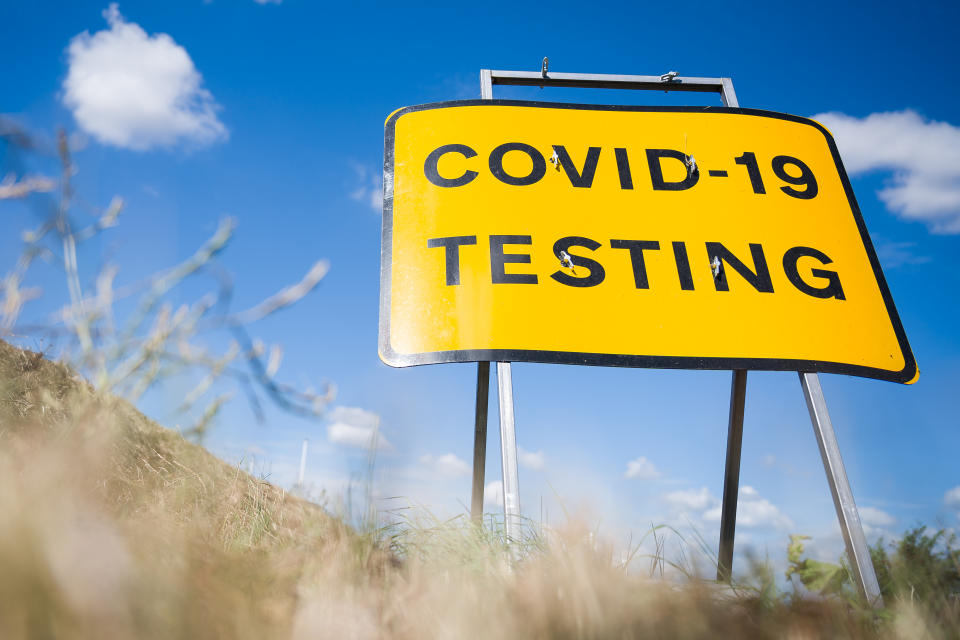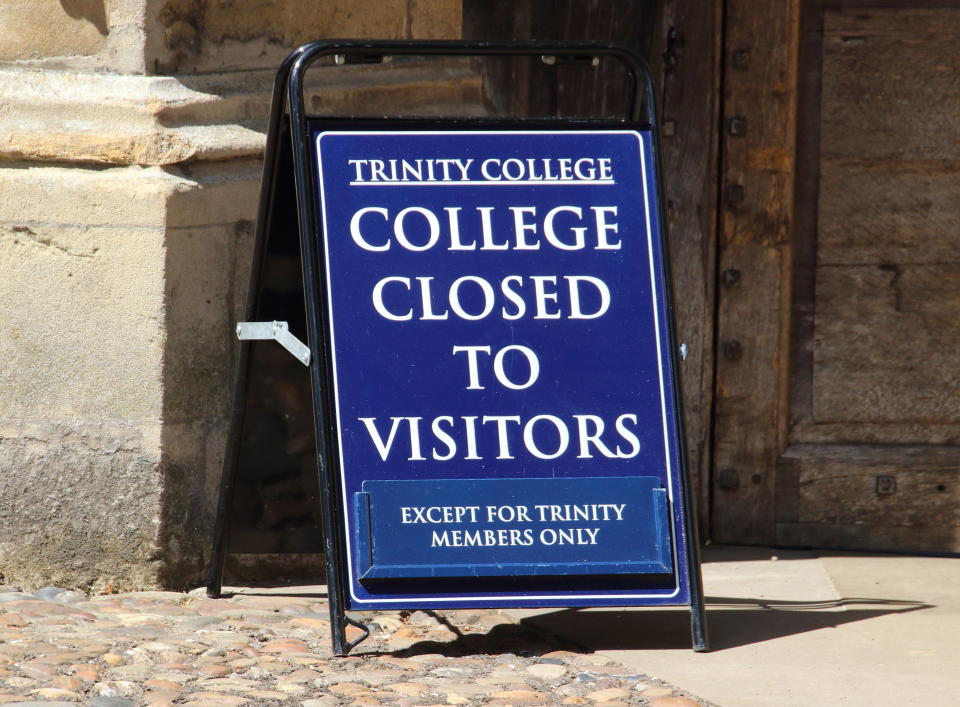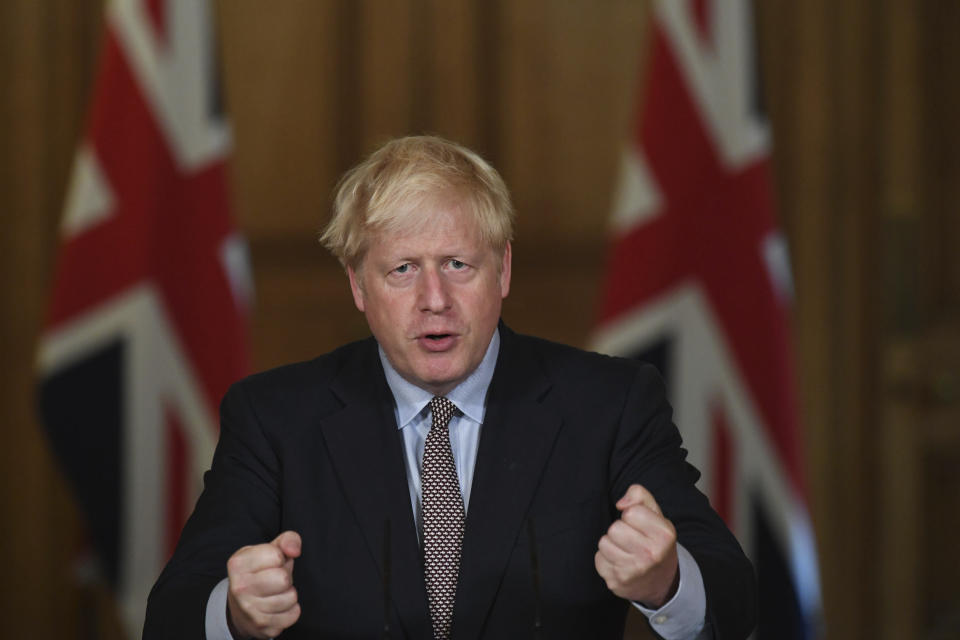Cambridge University offers weekly COVID-19 tests to all students living on campus

All students living in college accommodation at Cambridge University are to be offered weekly COVID-19 tests after term starts on 8 October.
Boris Johnson has urged universities to push on with their academic year despite the coronavirus threat – but Cambridge said it would go beyond government guidance and offer testing to students even if they show no symptoms.
It comes as health secretary Matt Hancock said on Wednesday that people should only have coronavirus tests if they show symptoms so that supply can stay ahead of demand.

But Cambridge says its testing programme, which is voluntary, is necessary to stop any potential spread.
Sample swabs, from the nose and throat, will be pooled by college household, allowing the university to reduce the number of tests required to some 2,000 per week.
If a pooled household test is positive, students in the household will be offered individual tests.
Cambridge vice-chancellor Stephen J Toope said in a statement: “We look forward to welcoming our students back to Cambridge and want to reassure them – and the wider local community – that we are doing everything we can to make sure they feel safe and supported while they are here.
“This screening programme is just one of a number of measures that we are putting in place to keep our university and city safe.”
Professor Patrick Maxwell added: “Offering testing to all students in college accommodation, who make up the majority of our student population, will help us reduce the risk of outbreaks by identifying individuals who will often not be aware that they are infected.”
In addition to the asymptomatic screening programme, the university is providing COVID-19 testing free of charge to any member of the university displaying symptoms, along with members of their household, and any student showing possible symptoms should use these facilities.
The moves come as the prime minister called on universities to not send students home in the event of an outbreak, and pleaded with students not to socialise in groups of more than six.
Johnson told a press conference that the Department for Education would issue updated guidance on how universities can remain open in a COVID-secure way.

This will include a “request not to send students home in the event of an outbreak so as to avoid spreading the virus across the country”, he said.
The prime minister’s plea comes after scientific advisers warned significant outbreaks of coronavirus linked to universities were “highly likely” and risk amplifying the transmission of the disease across the country.
Yahoo News UK has contacted Cambridge University for a further comment.
Coronavirus: what happened today
Click here to sign up to the latest news and information with our daily Catch-up newsletter

 Yahoo Sport
Yahoo Sport 






































